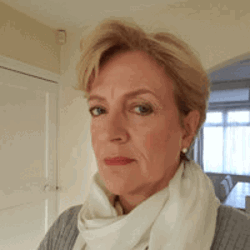· Keynote speaker, Professor Rachel Oliver FREng issues a challenge to the profession to improve diversity and inclusion using the same rationale it applies to technical projects
Around 100 alumni and programme partners gathered in London last night to celebrate ten successful years of its landmark Graduate Engineering Engagement Programme that supports young people from underrepresented groups into engineering careers.
World-leading materials engineer and incoming chair of the Academy’s Equity, Diversity and Inclusion committee Professor Rachel Oliver FREng opened the event, speaking about the challenges remaining and progress made over the past decade and why the engineering profession still needs programmes like GEEP.
In the mid-2010s, analysis of HESA graduate destination surveys found that just 52% of Asian students and 46% of Black students were in full-time jobs within six months of leaving university, compared with 71% of white engineering graduates. When gender, age, class of degree and type of institution were taken into account, Black and Asian graduates were more than twice as likely to be unemployed as their white counterparts. Employers were visiting the same, limited number of ‘milk round’ universities to recruit engineering graduates.
GEEP was launched in 2015 to try to redress the balance, and over the past decade has supported more than 2000 students, worked with more than 50 engineering company partners and more than 70 universities to empower underrepresented engineering undergraduates or recent graduates in their transition from education to employment. At the same time, it has been supporting the engineering industry to attract a diversified talent pool and build an inclusive culture in which diverse talent can thrive. The programme is funded by the Department for Science, Innovation and Technology.
However, despite the success of GEEP, in 2025 Black or Black British (11.1%) and Asian or Asian British (11.0%) are still the groups most likely to be unemployed after studying engineering – more than twice the rate of white graduates (4.8%).
In her keynote address, Professor Rachel Oliver celebrated the achievements of GEEP and issued a challenge to the audience of over 200 GEEP alumni and business leaders who have supported the programme: “There are GEEP alumni who have achieved fantastic success in their careers and many business leaders who can testify to the benefits of building a diverse and inclusive workforce” she says. “But GEEP is a drop in the ocean when we look at the bigger picture, where discrepancies continue, particularly for racially minoritised engineers.
“To really turn the dial, the entire engineering ecosystem needs to re-evaluate and improve the way it leads progress towards increased diversity and do so with the same skill, determination and engineering habits of mind it applies to technical projects. When it started, GEEP addressed a perceived deficit in student skills but adapted to address some of the systematic issues disadvantaging minoritised engineers. Now companies, universities, and professional engineering institutions need to join in with a fresh ‘engineering’ approach.”
Notes for editors
The Graduate Engineering Engagement Programme involves a series of in-person workshops and online webinars to support and upskill students with CV writing, job applications, interview support and networking confidence. This is supported by volunteers—professionals from engineering industry partners—as well as GEEP ambassadors (GEEP alumni who have joined the ambassador network). GEEP offers one-to-one mentoring with engineering professionals. A crucial aspect of GEEP is the broadening of students’ professional networks and access to social capital—connections they might not typically have exposure to.
Along with engineering industry partners, GEEP is also supported by co-delivery partners. The current delivery partners are a consortium of organisations (Causeway, the Brokerage, Brightside, The Talent People). Equal Engineers and The Clear Company have also provided invaluable contributions to the programme as well.

